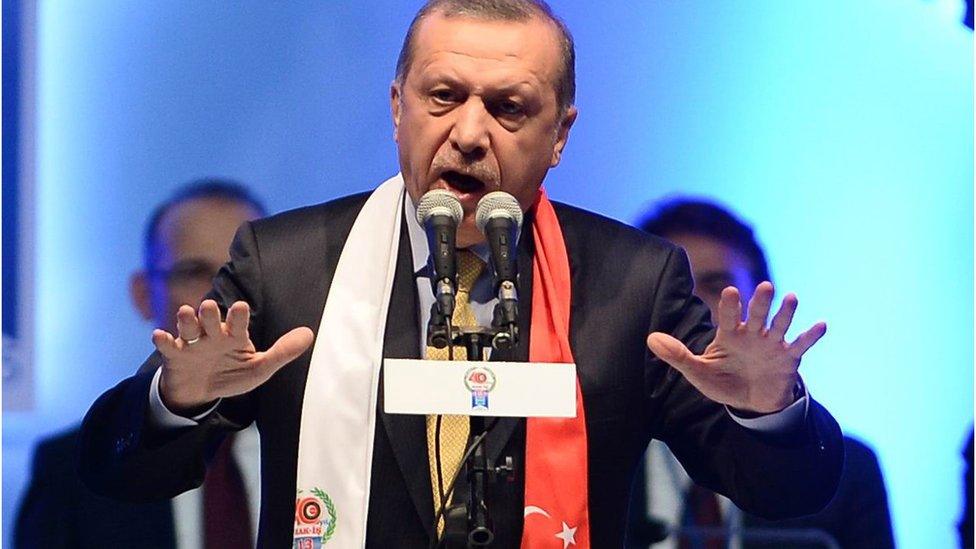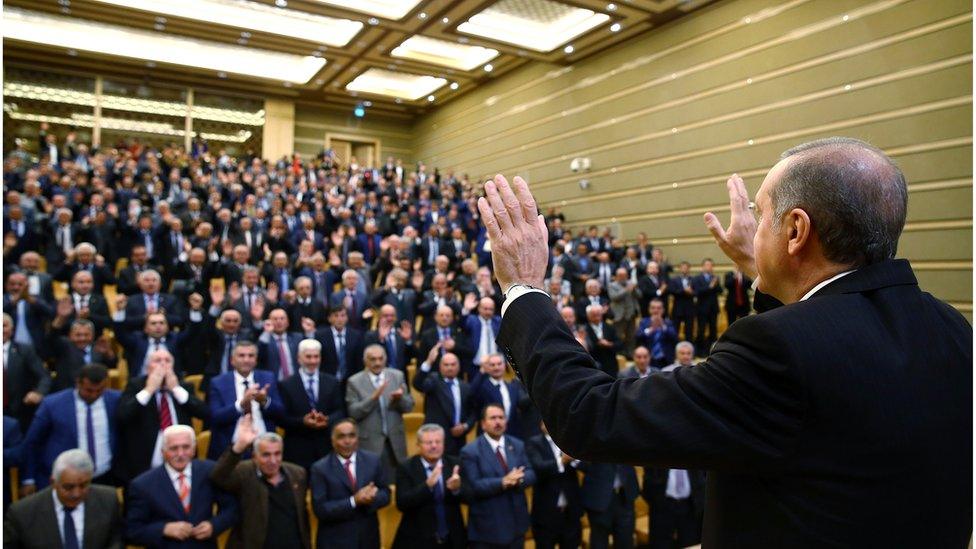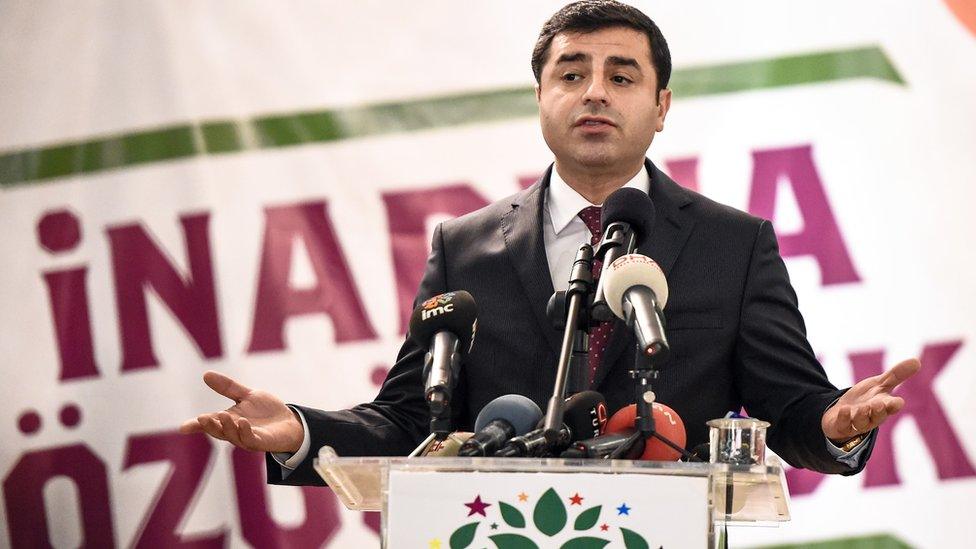Erdogan faces future of power sharing
- Published

President Recep Tayyip Erdogan has been accused of holding rallies to drum up support for the ruling Justice and Development Party (AKP)
With just under a week to go until Turkey's second elections - and with polls predicting no clear majority - the likelihood of a coalition government is increasing. Selin Girit looks at President Recep Tayyip Erdogan, former leader of the ruling AKP party and Turkey's most powerful man.
"Unfortunately some of Turkey's citizens are wary of you. They claim you are trying to turn the country into a dictatorship. How would you comment?" asked a Finnish journalist.
Three days had passed since the Ankara bombings - the deadliest ever attacks on Turkish soil that killed 102 people.
It was President Recep Tayyip Erdogan's first public appearance after the attacks. He was holding a joint press conference with his Finnish counterpart.
Taken slightly aback by the question, Mr Erdogan said: "You probably could not have asked that question if this country was a dictatorship."

Law requires that Erdogan remain neutral during elections
After having spent 13 years at the helm of Turkey, today Mr Erdogan is undoubtedly the most powerful man in the country.
A colossal figure in Turkish politics, he is either loved or loathed and it is rather difficult to remain indifferent to him.
As Turkey gears up for a re-run of the inconclusive parliamentary elections of five months ago, it's all about Mr Erdogan again - although he is the president and his name is not actually on the polling cards.
"If the president had confined to his constitutionally defined role, this election would not be about him but about who the next government would be," says Suat Kiniklioglu, an ex-MP of the governing AKP.
"He acts as if he is not only the president, but also the prime minister and the leader of the governing party," he adds.
'Great reformer'
For almost a decade after coming to power, Mr Erdogan was applauded for being a "reformist" by many circles, including the EU and the international community.
He was highly praised for steps such as containing the role of the military, for gaining Turkey the "EU candidate country" status or for transforming the economy - the GDP per capita has more than tripled since he came to power and is now over 10,000 US dollars.
Mr Erdogan has also been lauded for passing laws allowing the setting up of a state-run Kurdish television channel and the opening of Kurdish language schools, or for initiating a peace process with the Kurdish militants - which is now in tatters.

The ruling AKP party faces Selahattin Demirtas's pro-Kurdish People's Democracy Party (HDP)
"The analysis of Erdogan as the great reformer would actually mean your vision is distorted," argues Soner Cagaptay of the Washington Institute for Near East Policies.
"He politically brutalised activists, secularists, liberals, leftists, social democrats, socialists, Alevis and now Kurds... He brutalised so many groups that when you add them up together, they become the majority," he says.
Nebi Mis from the pro-government think tank Seta does not agree. "If there is a polarisation in Turkey, it would not be fair to solely blame Mr Erdogan," he says.
"We cannot claim that he is the only person with harsh rhetoric and all others are soft and conciliatory."
During Mr Erdogan's presidency since August 2014, more than 100 people - including journalists, academics and students - have been tried for allegedly "insulting the president".
Last month, a pro-AKP mob raided the offices of the flagship daily Hurriyet to protest against what they claimed was an unjust portrayal of Mr Erdogan.
Coalition government
"The anti-government Gezi protests, the corruption allegations, the Syria policy… When we add all these together, we can see why Mr Erdogan has become increasingly authoritarian," argues ex-AKP MP Kiniklioglu.
"If he had left the government four years ago to say he is going to run for presidency, today people would be building statues of him. But the terrible political legacy of the last four years will stick with him forever," he says.
As Turkey goes through arguably one of the most significant phases in its history, the latest polls suggest that the outcome of the snap elections will again fail to give any party an absolute majority.
Although some critics of Mr Erdogan claim that he will try to prevent the formation of a coalition government, many believe that another round of elections looks highly unlikely and that Mr Erdogan will need to adapt to the concept of power sharing.
Whether he is ready to do that will determine the future direction of this country.